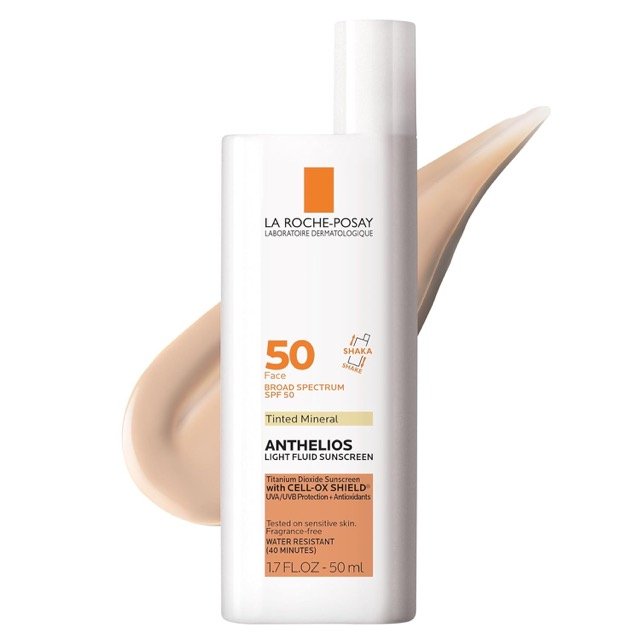Raxibacumab is a monoclonal antibody medication used for the treatment and prevention of inhalational anthrax, which is caused by the bacterium Bacillus anthracis. It works by binding to the protective antigen component of the bacterium, preventing it from entering cells and causing harm.
The free protective antigen (PA) component of the Bacillus anthracis toxin is bound and neutralised by the recombinant human IgG1 lambda monoclonal antibody known as raxibacumab.
- Following exposure to Bacillus anthracis, it is used to treat inhalational anthrax.
- When alternate treatments are either unavailable or inappropriate, it is also employed as a preventative measure for inhalation anthrax.
- It is used with the proper antibacterial treatment.
Raxibacumab Dose in Adult
Raxibacumab Dosage in the prophylaxis or treatment of Anthrax:
- Tt's given through an IV (intravenous) drip.
- The typical dose is 40 milligrams per kilogram of body weight, given as a single dose.
- So, a person's weight determines how much of the medication they receive.
Note:
- Before giving someone raxibacumab to prevent or treat anthrax, they might get diphenhydramine, a medication that helps prevent side effects during the infusion.
- They can take it by mouth or through an IV, depending on how soon they're getting the raxibacumab.
- The dose of diphenhydramine is usually between 25 to 50 milligrams.
- It's important to give raxibacumab alongside other drugs that fight the anthrax bacteria
Raxibacumab Dose in Children
Note:
- Before giving someone raxibacumab to prevent or treat anthrax, they might get diphenhydramine, a medication that helps prevent side effects during the infusion.
- They can take it by mouth or through an IV, depending on how soon they're getting the raxibacumab.
- The dose of diphenhydramine is usually between 25 to 50 milligrams.
- It's important to give raxibacumab alongside other drugs that fight the anthrax bacteria
Raxibacumab Dosage in the prophylaxis or treatment of Anthrax:
Infants, Children, and Adolescents:
- For those who weigh up to 15 kilograms, the dose is 80 milligrams per kilogram given once.
- For those weighing more than 15 kilograms up to 50 kilograms, it's 60 milligrams per kilogram given once.
- For those over 50 kilograms, the dose is 40 milligrams per kilogram given once.
- So, the amount they get depends on how much they weigh.
Pregnancy Risk Factor B
- In pregnancy, raxibacumab is classified as Pregnancy Risk Factor B, meaning that there haven't been observed adverse effects in animal studies.
- Guidelines for preventing or treating anthrax after exposure to Bacillus anthracis in pregnant and postpartum women are typically the same as those for nonpregnant adults.
- This means that the decision to use raxibacumab during pregnancy would consider the potential benefits against the risks, but there's no evidence to suggest it poses significant harm to the fetus.
Raxibacumab use during breastfeeding:
- Raxibacumab's presence in breast milk hasn't been studied, so it's unclear whether it's excreted.
- While immunoglobulins like raxibacumab can be present in breast milk, it's not expected to be substantially absorbed by the baby if ingested.
- However, the potential effects on the baby aren't known.
- Generally, the guidelines for preventing or treating anthrax after exposure to Bacillus anthracis in breastfeeding women are similar to those for nonpregnant adults.
- As with pregnancy, the decision to use raxibacumab while breastfeeding would consider balancing the potential benefits and risks.
Raxibacumab Dose in Renal Disease:
- The manufacturer's labeling for raxibacumab doesn't suggest any dosage adjustment for people with kidney problems.
- This is because the clearance of the medication doesn't primarily occur through the kidneys, so kidney function doesn't significantly affect how the body processes it.
Raxibacumab Dose in Liver Disease:
- The manufacturer's labeling for raxibacumab doesn't include any dosage adjustment recommendations for individuals with liver impairment.
Common Side Effects of Raxibacumab Include:
- Dermatologic:
- Skin rash
Less Common Side Effects of Raxibacumab Include:
- Central nervous system:
- Pain
- Dermatologic:
- Pruritus
Contraindication to Raxibacumab Include:
- According to the manufacturer's labeling, there are no contraindications listed for the use of raxibacumab.
Warnings and precautions
Infusion reactions
- Infusion-related reactions, such as rash, hives, and itching, have been reported with raxibacumab.
- To reduce the risk of these reactions, it's recommended to give diphenhydramine before the infusion.
- During the first 20 minutes of the infusion, the rate of administration is slowed down to watch for any adverse reactions.
- If any reactions, including infusion-related ones, occur, the infusion rate may be decreased or stopped altogether.
- This cautious approach helps manage any potential side effects during the infusion process.
Monitor:
None required
How to administer Raxibacumab?
Preparation and Administration of Raxibacumab
- Premedication: Before starting the raxibacumab infusion, give diphenhydramine at least one hour earlier.
- Administration Rate: The infusion of raxibacumab should take 2 hours and 15 minutes. During the first 20 minutes, the administration rate should be slower to check for any bad reactions.
- Monitoring: Keep a close eye for any adverse reactions, including infusion-related ones, throughout the entire infusion process.
- Adjustment: If any adverse reactions occur, such as rash or itching, slow down or pause the infusion as needed.
Specific Administration Guidelines:
- For individuals weighing 31 kilograms or more:
- Infuse at a rate of 15 milliliters per hour for the first 20 minutes.
- After the initial 20 minutes, increase the infusion rate to 125 milliliters per hour for the remainder of the infusion.
Mechanism of action of Raxibacumab (ABthrax):
- Raxibacumab is a type of medication made from a special kind of human antibody called IgG1 lambda monoclonal antibody.
- It works by attaching to and stopping the free protective antigen (PA) component found in Bacillus anthracis toxin.
- This action prevents the toxin from entering the cells of people infected with anthrax, as it normally would.
- So, by blocking this process, raxibacumab helps to prevent the harmful effects of anthrax infection in the body.
Distribution:
- Volume of Distribution: Raxibacumab has a volume of distribution of approximately 0.07 liters per kilogram of body weight. This value helps understand how the medication spreads throughout the body.
Elimination:
- Half-life: The terminal half-life of raxibacumab, which indicates how long it takes for half of the drug to leave the body, is approximately 20.44 ± 6.46 days. This means it takes about this much time for the medication levels in the body to decrease by half.
Excretion:
- Route of Excretion: Raxibacumab is primarily excreted in a way that doesn't involve the kidneys. This means it's eliminated from the body through nonrenal pathways, such as metabolism or other routes not involving the urine.
International Brands of Raxibacumab:
ABthrax
Raxibacumab Brands in Pakistan:
Raxibacumab is not available in Pakistan.








